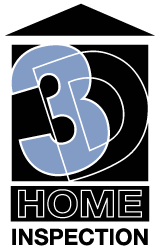I have been a home inspector in Illinois, mostly in the Chicagoland western suburbs, for over 15 years. That experience gives me a unique perspective on homeowners and their home maintenance habits. It doesn’t matter whether the house is in Aurora, St. Charles, Naperville, Plainfield, Oswego, or any other town, homeowners defer maintenance. It’s the norm – those whose house is well-kept are the exception. This doesn’t mean the house is in total disarray. It just needs minor to moderate upkeep.
Why Don’t Homeowners Maintain Their Homes?
This lack of maintenance can be due to costs, not knowing what needs to be done, forgetfulness, or a variety of other reasons. I’m not being judgmental. I have found myself in this situation at times. However, routine maintenance is very important for economics, property value, and safety.
Why Should Homeowners Keep Up with Home Maintenance?
- In general, being proactive with home maintenance is less costly than being reactive when something breaks.
- Property values usually remain steady.
- A well-maintained house presents itself better when it is on the market to sell.
- A well-kept house can give you a sense of pride and accomplishment.
How Can Lack of Maintenance Impact My Home Inspection?
A home inspection includes the roof, exterior, interior, HVAC, plumbing, electric, insulation & ventilation, structure, and gas burning appliances. During an inspection, a home inspector is checking for significantly deficient systems and components. (The Illinois Home Inspection Act defines Significantly Deficient as not functioning or unsafe.) Systems and components may be functioning but still in need of servicing and maintenance.
When it comes to being unsafe, each of the areas have their own hazards. Hazards from trips and falls, shocks/electrocution, cross contamination, flooding, carbon monoxide poisoning, and fires are all safety concerns. Good home maintenance habits can prevent some of these hazards.
A Home Inspector’s Perspective
In upcoming posts, I’ll give you a home inspector’s perspective on the safety hazards for the various systems and components I inspect. Next week I’ll discuss smoke alarms, commonly called smoke detectors. By the way, alarms and detectors are not the same. You’ll find out why in my next post.
